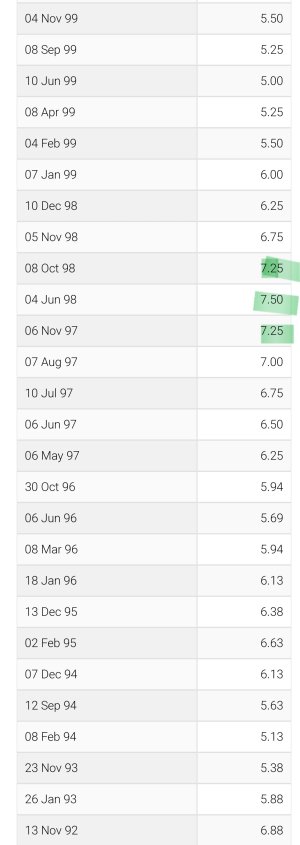Elephant Pyjamas
Well-known member
- Joined
- Jul 12, 2011
- Messages
- 19,179
- Reaction score
- 14,405
You literally said what I said was wrong.So you are disregarding the first 3 years of the decade? The 2 years after the BOE took control of rates are also significantly higher. It's still not true.
"For the majority of the 90s it wasn't much higher than this either."
That quite clearly is correct.

